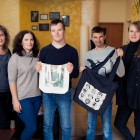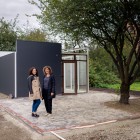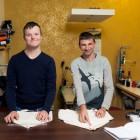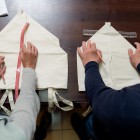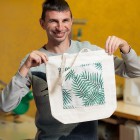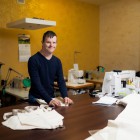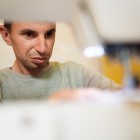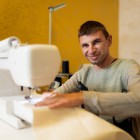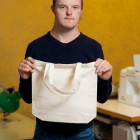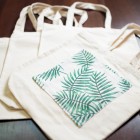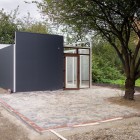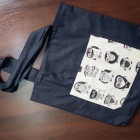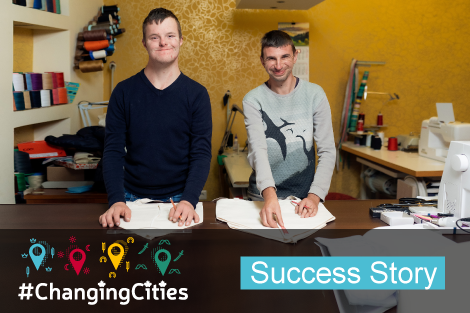
Three women — mothers of children with disabilities — established the “Same Chas” [The Time Is Now] NGO in Kolomyia in March 2017. It helps young people with disabilities to socialize and pursue self-fulfillment, to protect their rights and interests, and to reach out to Ukrainians to raise awareness about the importance and advantages of an inclusive environment and equality in social life. In 2019, the team decided to start a Kolomyia-based social inclusion enterprise that would employ young people with disabilities, and this is how the eco bag workshop came to be. The idea began to materialize in March 2020 under the auspices of PLEDDG and Kolomyia City Hall.

The process of creating the social inclusion enterprise required adapting the workshop premises to the needs of people with disabilities and installing essential equipment. Kolomyia City Hall made its own contribution by installing the workshop pavilion on the premises of the Ukrainian Red Cross Society in Kolomyia. However, the quarantine imposed in response to the COVID-19 pandemic necessitated major adjustments to the project timeline: contingency funds from the city budget were redirected towards fighting the disease and as a result, the workshop space was completed only in November 2020.
The workshop will hire up to 15 people with disabilities aged 18 to 35. Applicants have already been shortlisted based on their interest in employment and their physical capabilities. A cutting and sewing expert delivered several days of training for the young people focusing on the specifics of the process of eco bag production and finishing. Workshop leader Iryna Yurakh also completed the training course in order to learn the modern techniques and secrets of eco bag production and subsequently ensure a high-quality manufacturing process.

Workflows in the workshop are organized in 5 zones: 2 computerized sewing machines, an overlock, an ultrasonic machine, and a cutting bench. As a result, five people with disabilities can be involved in the production process at any one time. Bags will be made from democratic flax linen fabric and spunbound: the materials have already been purchased from Ukrainian vendors. As a key competitive edge, the bags can be imprinted with images, so the team plans to buy a direct-to-fabric printer for the workshop.
The eco bags will be sold through stores and supermarkets in Kolomyia, at fairs arranged at tourist destinations, as well as online. In an attempt to find markets for their products, the project initiators are on the lookout for partners and have already made an arrangement with the Association of Hoteliers and Homestead Owners of Yaremche Region to produce branded eco bags for them.

Same Chas’ eco bag workshop became Kolomyia’s first social inclusion enterprise committed to hiring people with disabilities. Apart from the fact that cutting and sewing promotes fine motor and tactile development as well as better focus, this occupation will become a source of income and give young people with disabilities some measure of independence. Interactions with schoolchildren and practical experience transfer will become a factor of personal development for both people with disabilities and high-schoolers. By supporting such social inclusion enterprises, PLEDDG helps to bring about crucial inclusive changes in cities and create a favorable setting for socialization of people with disabilities.
| Download success story Kolomyia: City’s First Social Inclusion Enterprise Staffed by People with Disabilities in pdf. |


